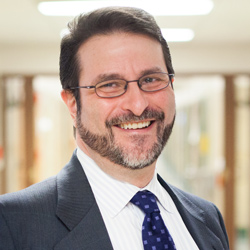Workshop Explores Potential of ‘Smart Sensors’ for Environmental Monitoring
More than 90 researchers and scientists took part in the virtual event on May 11-12
More than 90 researchers and scientists convened May 11-12 for the SAGE Community Workshop, a virtual event that discussed the latest advances on a Northwestern-led project to develop machine learning-based sensors for environmental monitoring.

Supported by a $9 million grant from the National Science Foundation, the SAGE project was launched last fall to develop a novel cyberinfrastructure that uses advanced machine learning algorithms and artificial intelligence-enabled sensors to provide climate, traffic, and ecosystem experts robust, real-time data to build new models to study these systems.
As part of the project’s pilot test, researchers are working to deploy the smart sensors to sites in California, Colorado, and Kansas and in urban environments in Illinois and Texas. In addition to Northwestern, other collaborators include Argonne National Laboratory, University of Chicago, and Los Alamos National Laboratory.
Workshop topics included a discussion of the hardware and software behind the system, as well as case studies of how the sensors could help scientists gain a new understanding of environmental events. Participants also discussed how SAGE could be used to gather environmental data as a method to predict infectious diseases, like COVID-19.
Jennifer Dunn, research associate professor of chemical and biological engineering at Northwestern Engineering, and Nicola Ferrier, senior computer scientist at Argonne, led a panel on approaches to bolster AI education to students.

Aaron Packman, professor of civil and environmental engineering, and Daniel Horton, assistant professor in the Department of Earth and Planetary Sciences in the Weinberg College of Arts and Sciences, discussed the need for new data to support resource management and disaster preparedness and response in cities. They believe SAGE has the potential to provide real-time prediction and warning of impending natural disasters, like tornadoes or floods, and improve coordination of disaster response by directing resources to the hardest-hit areas.
“Over the long term, SAGE data will be very useful for urban planning, designing strategies like city-wide green infrastructure to reduce vulnerabilities, and evaluating the effectiveness of these efforts,” Packman said.
In addition to Northwestern and Argonne, other institutions represented at the workshop included Los Alamos National Laboratory, Lawrence Berkeley National Laboratory, University of California San Diego, Northern Illinois University, University of Utah, University of Chicago, Illinois Institute of Technology, University of Vanderbilt, Texas Tech University, Rutgers University, DePaul University, University of Maryland, Battelle, Lincoln Park Zoo, NASA, ESnet, Clemson University, ARM, and Google.
